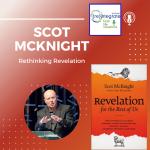Graduation season is upon us. I celebrated with a friend at his graduation last week. In the coming week my university begins its marathon of multiple commencement services. And, by the end of the month I will be completing a third graduate degree.
As I think about the importance of these events and the value of education in general, I’m reminded of several realities.
Education Is a Good Investment
First, education is a good investment of time and money. This is not the case for all people, but for most, education represents an investment that appreciates rather than decreases in value over time. In other words, it is more like investing in a house (that tends to appreciate in value) rather than investing in a car (that tends to depreciate in value).
Education Improves Earnings and Marketablity
Second, education tends to improve capacity for future earning and lower rates of unemployment. Again, this is not the case for all people, but generally speaking, earnings increase and unemployment rates decrease as higher levels of education are attained.
Here is a helpful table from the Bureau of Labor Statistics that illustrates this point.

Education Provides More Effective Approaches to Work
Third, education enables us to do better what we already must do. In most cases, employment is a necessary part of life. It is the way people are able to make a living and provide for themselves and their family. This logic might not work for everyone, but for me it does. If I’m going to be engaged in a job, I want to do it well. Education helps me to do the work I already need to do in a more effective manner.
Education Provides A Pathway for Lifelong Learning
Fourth, education provides a natural pathway for lifelong learning. I view learning as intrinsically valuable. I also believe we are hardwired and created by God as learners. While learning can happen independently, engaging in a structured learning process allows us to benefit from those who have gone before us in a particular field of knowledge.
In my particular field of leadership studies, I’m convinced that leadership involves a deep commitment to learning (see my previous thoughts on this here: Leadership: A Commitment to Learning). But learning is not just the work of leaders. There is both intrinsic and utilitarian value in learning for any field. Formal education is not the only path by which lifelong learning can take place. However, it is a key pathway that has helped many people.
While there are certainly examples that would not support the above, these four benefits of higher education are true for most. As you celebrate with the graduates in your life this season, be reminded that their investments and labors have not been in vain.













